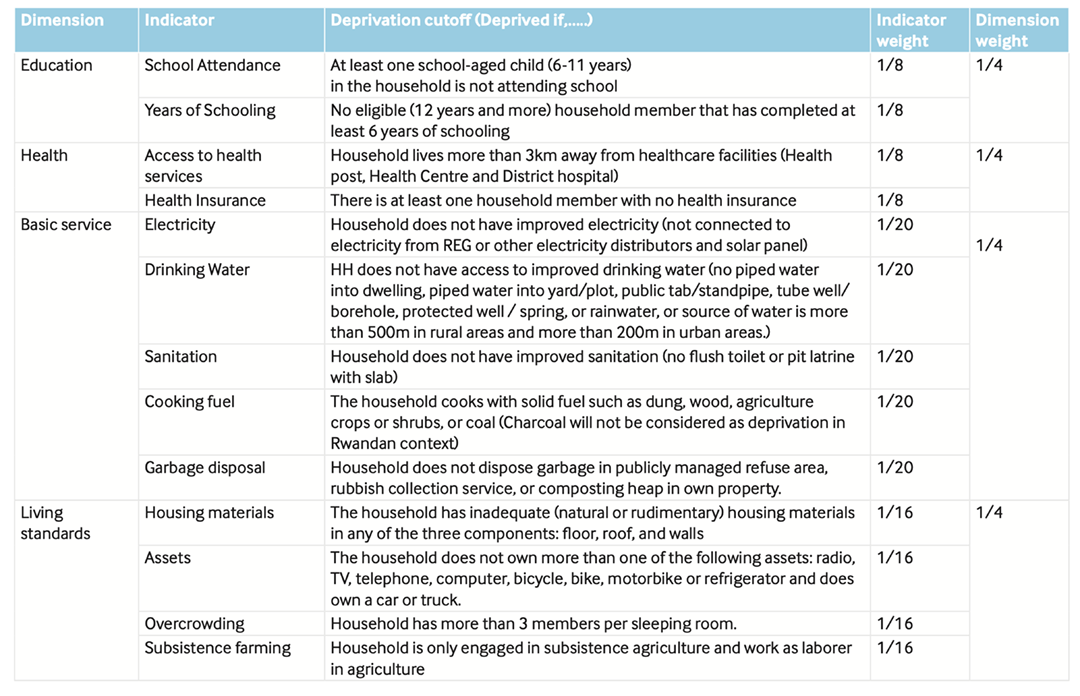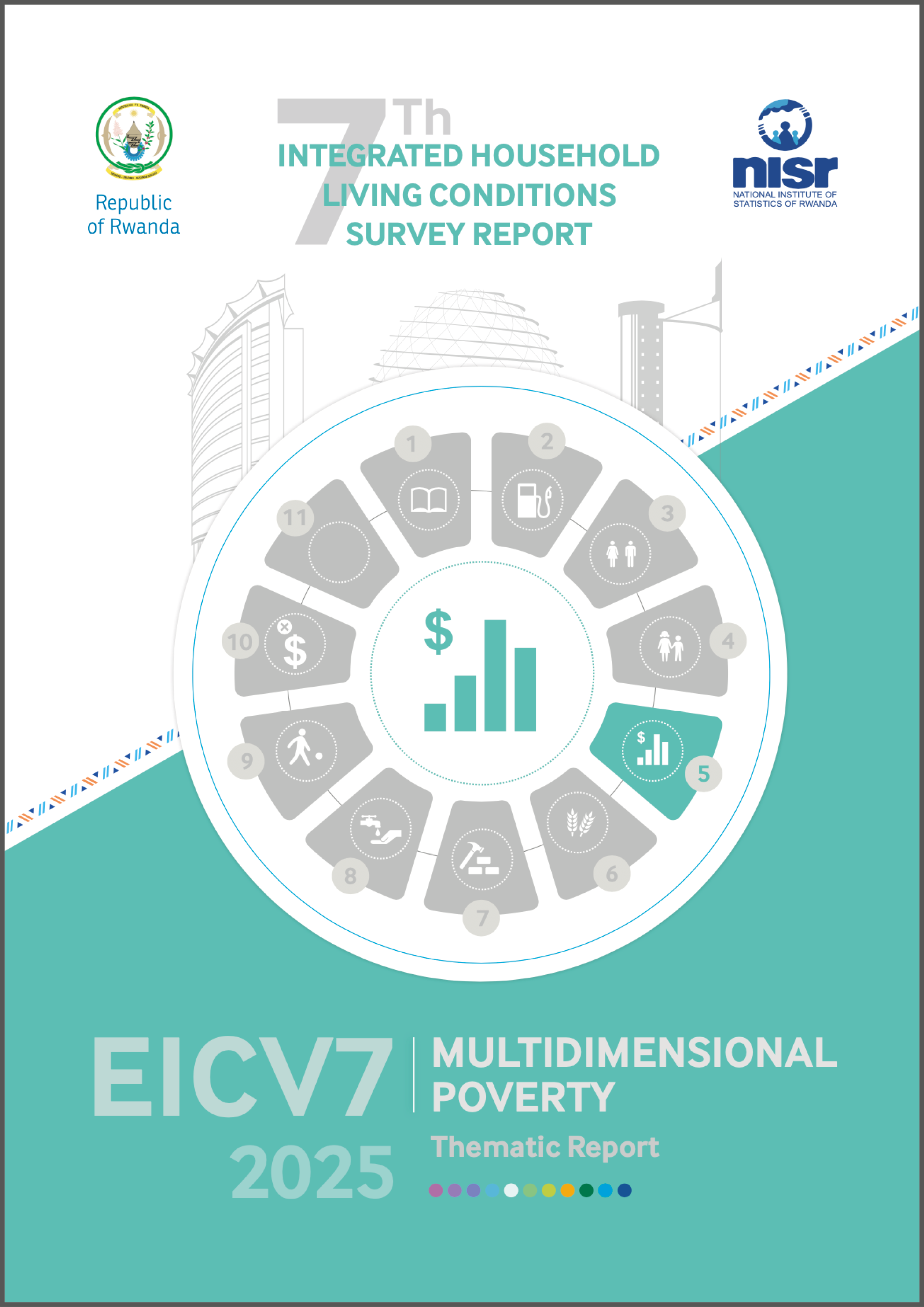Rwanda MPI
MPI originally introduced: 2018
Latest MPI results: Rwanda MPI 2024
In 2025, National Institute of Statistics of Rwanda released Rwanda’s second national Multidimensional Poverty Index (MPI), based on the Seventh Integrated Household Living Conditions Survey (EICV7) conducted in 2023/24. The 2025 report revised the 2018 MPI methodology and structure, as detailed on pages 23-24 of the EICV7 thematic report.
- Citation: National Institute of Statistics of Rwanda (NISR) (2025). Seventh Integrated Household Living Conditions Survey (EICV7). Report: NISR
Previous results
Rwanda’s first survey-based Multidimensional Poverty Index (MPI) was published in December 2018, based on the Integrated Household Living Conditions Survey (EICV) data 2016/17.
- Citation: National Institute of Statistics of Rwanda (NISR), The Rwanda Multidimensional Poverty Index Report, December 2018
In 2023, NISR released an MPI report based on the 2022 Fifth Rwanda Population and Housing Census (RPHC 2022), with modifications to some indicators to account for limitations in census data.
- National Institute of Statistics of Rwanda (NISR), Fifth Rwanda Population and Housing Census, Measurement and mapping of non-monetary poverty, July 2023
Rwanda MPI structure: dimensions and indicators
Poverty Cut-Off: A person is considered poor if they are deprived in 33.3% or more of the 13 weighted indicators.

Global MPI
The annual global MPI produced by the Oxford Poverty and Human Development Initiative in partnership with the Human Development Report Office of the United Nations Development Programme is an internationally comparable index of acute multidimensional poverty. OPHI publishes Country Briefings summarising poverty statistics of the global MPI for each country.
Visit the most recent Global MPI Country Briefing for Rwanda based on DHS year 2019-2020.
More info
Official institution responsible for statistics
Voluntary National Reviews
- 2019 | 2019 Rwanda Voluntary National Review (VNR) Report p. 26
- 2023 | 2023 Rwanda Voluntary National Review, p. 82



